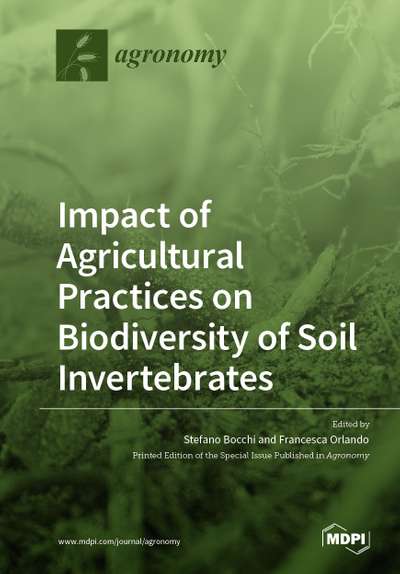Impact of Agricultural Practices on Biodiversity of Soil Invertebrates
Stefano Bocchi, et al.

Soil fauna plays a key role in many soil functions, such as organic matter decomposition, humus formation, and nutrient release, modifying soil structure, and improving its fertility. Soil invertebrates play key roles in determining soil suitability for agricultural production and realizing sustainable farming systems. They include an enormous diversity of arthropods, nematodes, and earthworms. However, this fauna suffers from the impact of agricultural activities with implications for the capacity of soil to maintain its fertility and provide ecosystem services. Some agricultural practices may create crucial soil habitat changes, with consequences for invertebrate biodiversity. In the few last decades, especially under intensive and specialized farming systems, a loss in soil ecosystem services has been observed, as a result of the reduction in both the abundance and taxonomic diversity of soil faunal communities. On the other hand, agricultural practices, based on sustainable soil management, can promote useful soil fauna. Therefore, the concerns about the sensibility of soil biota to the agricultural practices make it urgent to develop sustainable management strategies, able to realize favorable microclimate and habitats, and reduce the soil disturbance.
*Available as Download Only
MDPI Book Link (available for purchase)
Publication Details
- Published: 2021
- Publisher: Mdpi AG
- ISBN-10: 3039437194
- ISBN-13: 978-3039437191